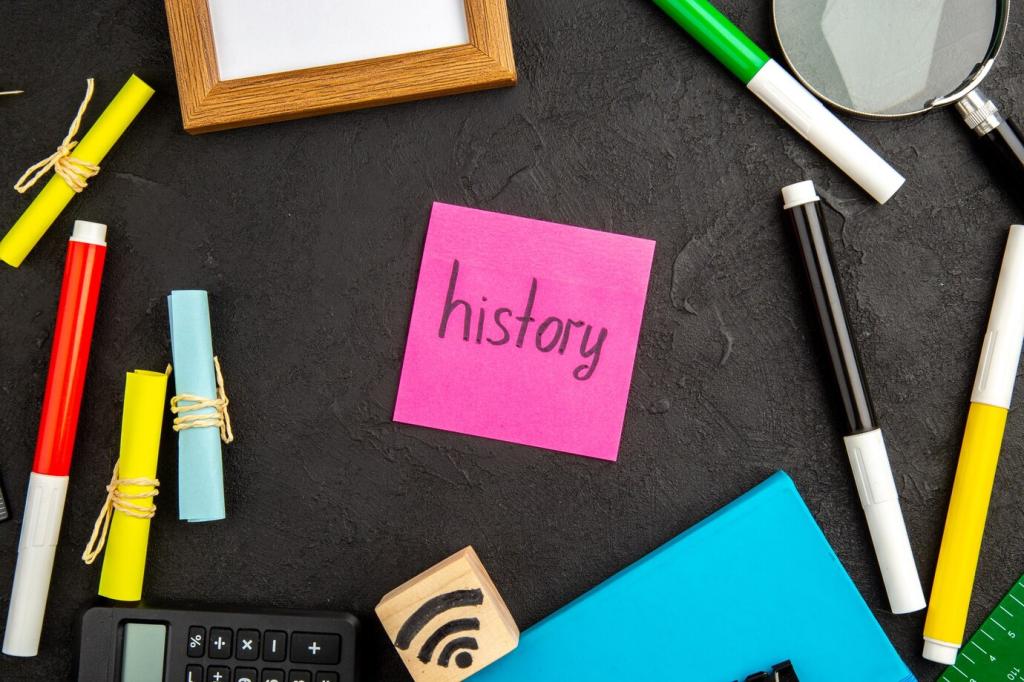If the Web Had Whirred in Steam: Society and a 19th Century Internet
Chosen theme: The Impact of a 19th Century Internet on Society. Step into an alternate century where humming engines and cables connect workshops, parliaments, and parlors. Explore how steam-age connectivity might have reshaped daily life—and share your thoughts, subscribe, and join this living experiment in imagination.
Messages at the Speed of Steam: Communication Reimagined
Imagine telegraph offices doubling as communal portals where Morse clicks become threaded conversations, letting artisans, sailors, and scholars coordinate across oceans before kettles cool, and newsboys refresh city feeds like a living pulse on every corner.
Broadsides leap from print to networked posts, traveling from coffeehouse walls to global noticeboards in minutes, turning local grievances into continental debates. Comment with a pamphlet title you would repost to rally your 19th century neighborhood.
A mother in Cork reads her canal-worker son’s nightly update from New York, complete with sketches and wage charts, soothing distance with shared routines. Share your imagined message home, and subscribe to follow more human stories across the wires.

Politics in Real Time: Revolutions, Suffrage, and Censorship
1848 with live feeds and citizen dispatches
Barricades, once whispered about days later, now appear in near real time through neighborhood dispatches, sketches, and location pings. Moderators translate dialects, and exiles coordinate safe routes. Would you tune in or step away when the signals blare?

Steam-Powered Markets: Industry, Trade, and Finance
Manchester mills watch cotton prices tick from New Orleans by the hour, smoothing shocks and exposing speculation. Cooperative weavers post wage ledgers publicly, bargaining with data. Would transparent dashboards change your stance on fair pay in crowded mills?
Steam-Powered Markets: Industry, Trade, and Finance
Clerks publish machine-readable tables for Difference Engines, while entrepreneurs sell paper APIs—forms that machines parse, humans sign, and rails deliver. Comment with a product idea your Victorian startup would launch into this humming, data-driven bazaar.


Science for All: Knowledge, Education, and Collaboration
Digitized plates and lab logs stream to provincial schools, letting a blacksmith’s daughter study nebulae between forging hinges. Readers annotate with vernacular terms, building glossaries. Tell us which archive you would unbolt for public exploration today.

Everyday Culture: Etiquette, Art, and Romance Online
Periodicals debate whether midnight messages are unseemly, and parsons petition for Sunday quiet hours. Meanwhile, youth invent gentle status lights. Would your household post a parlor code of conduct beside the umbrella stand and family portraits?


Public Health and Safety: Data Against Disaster
Water pump reports update hourly, and households flag symptoms anonymously. Physicians debate transmission openly, while neighbors reroute daily walks. Would your street share data publicly to save lives, and subscribe for more on early epidemiological dashboards?
Public Health and Safety: Data Against Disaster
Barometers post sudden drops to community boards, and bell towers echo network warnings. Volunteer brigades dispatch by block, logging hydrant failures. Share a tip your town would upload to keep response times low through smoke and storm.
Class lines etched in copper and coal
Factory owners browse between meetings while night-shift workers borrow minutes at public portals. Mutual aid societies sponsor tokens for access. Comment with policies your guild would propose to keep the commons genuinely common and welcoming.
Colonial cables and contested voices
Messages hop through imperial hubs where officials throttle dissent. Journalists partner with telegraph clerks to preserve eyewitness posts. Subscribe for field notes on how marginalized communities might reclaim channels and tell their own histories in real time.
Accessibility through tactile telegraphy
Inventors adapt vibrating receivers and embossed interfaces so blind readers follow threads by touch. Public rooms offer quiet booths and captioned relays. Tell us which inclusive design principle you would champion as standard on every city corner.
Infrastructure and Governance: Who Runs the Net?
City blocks host packet stations where clerks stamp priorities and route capsules to neighborhood hubs. Citizens petition for transparent queues. Would your council fund more stations or tax heavy users to keep pathways flowing fairly?

Infrastructure and Governance: Who Runs the Net?
Durable gutta-percha sheaths hug ocean floors while storms test resilience. Merchants demand redundancy; poets dream of letters crossing midnight. Subscribe for a deep dive on maintenance ships, repair crews, and the romance of keeping continents in conversation.
Join our mailing list
